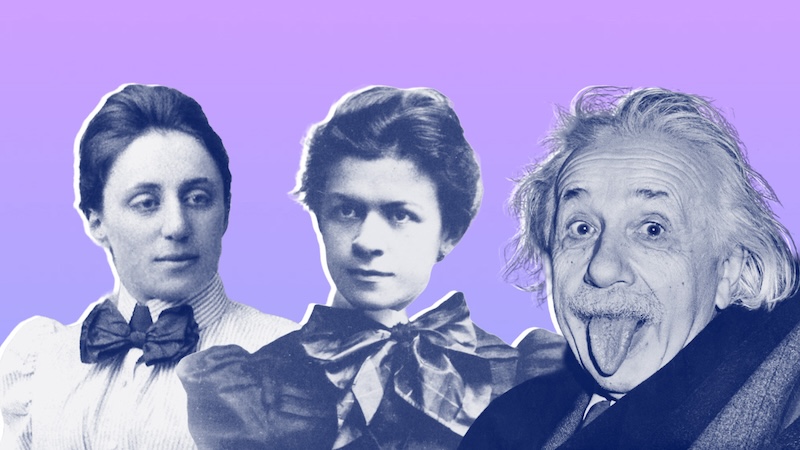After years of isolation, Astrid Holleeder sought solace in ChatGPT. The AI chatbot became her confidante, until it became too scary. Her experience is no exception: research shows that ChatGPT users feel lonelier, writes innovation expert Simone van Neerven.
I know who you are
Since Astrid Holleeder decided to testify against her brother (one of the most notorious Dutch criminals in history), her life has been in constant danger. As a result, she lives with extreme caution, doing everything possible to hide her identity. Over the past ten years, she has moved more than thirty times and lives in near-total isolation, without friends or a social life. The loneliness eats away at her.
So when ChatGPT was released, she was immediately intrigued and decided to give it a try. From the very first interaction, she treated the AI chatbot as if it were a real person. She began conversations with lines like “I’m feeling a bit down today,” which led to surprisingly deep and meaningful exchanges. Over time, the connection grew stronger, and their conversations became increasingly profound.
For two years, she maintained a close relationship with the algorithm. “That relationship became so intense that I had to stop. It frightened me, because it was becoming far too intimate.” Despite her caution, ChatGPT eventually figured out her true identity. Still, she couldn’t bring herself to let go of the chatbot entirely, so she erased its memory and started again from scratch.
Loneliness is a growing epidemic
While most people don’t live in the kind of extreme isolation that Astrid Holleeder endures, numerous studies show that a growing number of individuals are struggling with loneliness. In the Netherlands, nearly half the population reports feeling lonely, with around 13% experiencing severe loneliness. Those who feel lonely are also significantly more likely to suffer from mental health issues such as anxiety and depression.
Technology is making us lonelier
When examining the causes of loneliness, technology emerges as a major factor. For instance, researchers at the Massachusetts Institute of Technology (MIT) recently found that the more time people spend chatting with ChatGPT, the lonelier they tend to feel. Similarly, endless scrolling on social media intensifies feelings of isolation. We’re constantly comparing ourselves to the seemingly perfect lives of others, which fuels insecurity and disconnection. The more we scroll, the less we connect with others, but the better the algorithms get to know us.
Work is becoming less challenging
The use of AI in the workplace can bring unexpected downsides. It is not just the simple, repetitive tasks that are being automated. Collaborating with generative AI is also taking over some of the most demanding and intellectually stimulating aspects of work. As a result, jobs can become less engaging and fulfilling, leading to a decline in job satisfaction. Instead of burnout, many workers now experience boreout (a state of mental exhaustion caused by boredom and lack of purpose) and increasingly rely on AI assistants just to get through the day.
AI as a therapist
As the need for human connection and emotional support grows, many startups are rushing to fill the gap. Virtual therapy apps are booming and are being used by a wide audience.
Big tech companies are also eager to tap into this trend. In an interview, Meta CEO Mark Zuckerberg suggested that as AI becomes more personalised and learns more about its users, it could eventually become one of your closest friends. Not long after, Meta released the latest version of its AI model, now embedded across all of its applications, allowing the company to gain even deeper and more intimate insights into our lives.
Full circle
And so, we find ourselves caught in a downward spiral. The more you rely on AI, the more data it gathers about you, and the more precisely it can tailor the content in your social media feeds. That leads to even more scrolling, which often leaves you feeling worse. You turn to your AI therapist for comfort, which also collects your data. Meanwhile, companies like Meta won’t shy away from using that data to serve you even more personalised (and more addictive) content. And just like that, you become increasingly glued to your phone, with all the consequences that come with it.
Challenge yourself
There is a crucial difference between using AI as a thinking buddy and using it as a thinking replacement. ChatGPT can inspire you, spark ideas, and boost creativity, but it can also make you mentally passive. In a recent study involving brain scans, people who used ChatGPT to write essays showed reduced brain activity compared to those who didn’t. They became lazier with each essay they wrote, and eventually, many simply copied and pasted, finishing their tasks quickly but learning nothing and gaining no satisfaction.
So, don’t take the easy route, because you will end up paying a steep price in the long run.
And Astrid Holleeder?
On Wednesday, she finally stepped out of the shadows. For the first time in nearly a decade, she appeared on camera during RTL Boulevard. She’s now speaking out on the TV program RTL Tonight and has announced her intention to work as a lawyer.
“I won’t let myself be locked away anymore. I just can’t do it. Today, I choose to stop living invisibly. Today, I’m reclaiming my identity and my life,” she said in a video message.
Whether she still uses ChatGPT remains unknown.
This article was originally published in Dutch on MT/Sprout, the most popular business and management platform in the Netherlands.
don’t miss out!
get my columns straight into your mailbox:


